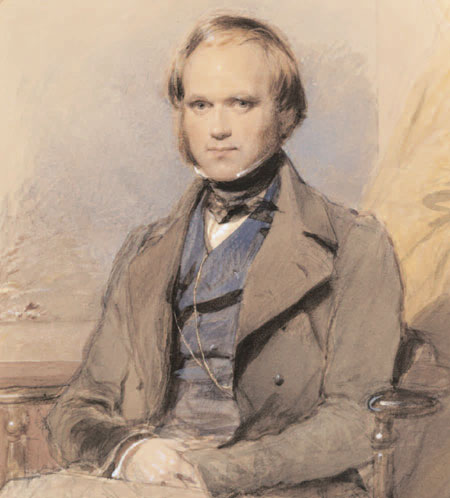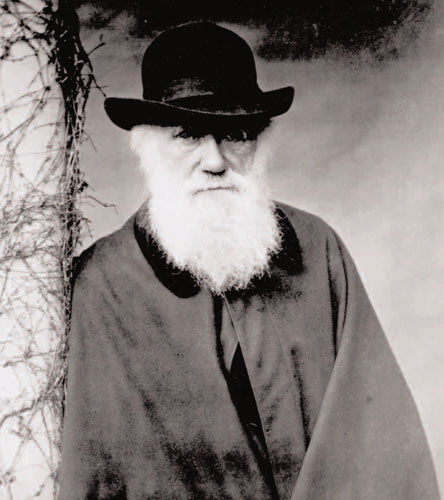The Festival Au Desert in Essakane, Mali (2 hours from Timbaktu) will be held from January 8-10, 2009.
And while I cannot be there in 2009, I still hope that some day before I die I will make it to this musical heaven. For now, I get to enjoy Ali Farka Toure jamming at the Festival in 2003 ... many thanks to youtube poster, Festivalhopper, who has uploaded many videos of live performances from festivals around the world.
also this video of Ali Farka Toure from the festival..
and here's one of Oumou Sangare (see post) with Ali Farka Toure (also from the 2003 Festival.)
And last but not least... though Ali Farka Toure is no more with us, here's a video of his capable son, Vieux (see 1, 2, 3) at the 2008 Festival.
Another great voice from Mali... Oumou Sangare. Love her music too, though to me, the voice of Mali's other famous female singer Rokia Traore is un-match-able.
First up, a track called Saa Magni
Great photographs to go with this video of the song, Yala.
And one last one...
Update: Turns out that, expectedly, I have already posted Oumou's songs at my previous blog. No repeats luckily ....so, you can go see the old posts here and here.
Two guitar greats from Mali... short but beautiful video.
A longer video of the two performing together can be seen here.
I have posted about the music of Ali Farka Toure many times before (see 1, 2, 3) but couple more videos here of Boubacar Traoré, whose life story is an interesting example of how famous and great musicians sometimes go unrecognized for decades. So much beautiful music could have been recorded for the generations in the 1970s and 1980s when Boubacar was toiling away in various menial jobs in Mali!
Absolutely lovely! NO wonder, Ali Farka Toure, himself an undisputable legend of Malian music, had this to say about Boubacar (fondly called "Kar Kar"): "If the maximum is five, I give ten to Kar Kar".
Darwin and The Origin of Species
Posted by Sanjeev on Monday, November 24, 2008 with 0 comments » | ScienceGreat set of pictures, via the Guardian.
Darwin at age 31 in 1840, recently married, a dignified young naturalist with a secret theory about evolution. Portrait of Darwin, 1840, by George Richmond, ©Darwin Heirlooms Trust, courtesy of the English Heritage Photo Library
the great escapist
In an interview with me in 1997, Le Clezio explained that during this period he was greatly affected by Aldous Huxley's seminal dsytopian tract, Brave New World. This influence is most evident in The Giants, a novel describing a Big Brother-style society of surveillance, founded on the seduction of the consumer and the control of language by "the Masters". With characters called Machines and Tranquillity, trapped in a massive supermarket named Hyperpolis, Le Clezio echoes Huxley's horrific vision of the future in a premonitory portrait of the manipulative power of advertising. The inescapable oppression of modern Western civilisation and the fear of what it might lead to is the essential message that Le Clezio seeks to convey here, and there is little hope for new beginnings or a better way of being in the world. More optimistic insights came to him, however, as he travelled and experienced other cultures. After brief periods working as a teacher in Thailand and a librarian's assistant in Mexico, he spent considerable time in the early '70s living among the Embera indians, deep in the forests of Panama.
more from The Australian here.
Seduction of the consumer and control of language
Posted by Sanjeev with 0 comments » | Fiction, LitPrizesThis year's Nobel laureate seems like one who I would love to read more of...
the great escapist
In an interview with me in 1997, Le Clezio explained that during this period he was greatly affected by Aldous Huxley's seminal dsytopian tract, Brave New World. This influence is most evident in The Giants, a novel describing a Big Brother-style society of surveillance, founded on the seduction of the consumer and the control of language by "the Masters". With characters called Machines and Tranquillity, trapped in a massive supermarket named Hyperpolis, Le Clezio echoes Huxley's horrific vision of the future in a premonitory portrait of the manipulative power of advertising. The inescapable oppression of modern Western civilisation and the fear of what it might lead to is the essential message that Le Clezio seeks to convey here, and there is little hope for new beginnings or a better way of being in the world. More optimistic insights came to him, however, as he travelled and experienced other cultures. After brief periods working as a teacher in Thailand and a librarian's assistant in Mexico, he spent considerable time in the early '70s living among the Embera indians, deep in the forests of Panama.more from The Australian here.
Scandal is our growth industry
Posted by Sanjeev on Saturday, November 22, 2008 with 0 comments » | LifeMark Danner writes in the New York Review of Books:
Scandal is our growth industry. Revelation of wrongdoing leads not to definitive investigation, punishment, and expiation but to more scandal. Permanent scandal. Frozen scandal. The weapons of mass destruction that turned out not to exist. The torture of detainees who remain forever detained. The firing of prosecutors which is forever investigated. These and other frozen scandals metastasize, ramify, self-replicate, clogging the cable news shows and the blogosphere and the bookstores. The titillating story that never ends, the pundit gabfest that never ceases, the gift that never stops giving: what is indestructible, irresolvable, unexpiatable is too valuable not to be made into a source of profit. Scandal, unpurged and unresolved, transcends political reality to become commercial fact.
Mahotella Queens from South Africa
Thoko (1964)Jabulani Mabungu (1967)
Umculo Kawupheli (1974)
On David Letterman's show (1990)
The Mahotella Queens with Mahlathini and the late, great 'groaner' Simon Mahlathini Nkabinde performing Mbaqanga (1991)
At the Grassroots Festival, New York (2002)
and finally at the WOMAD 2007 in Taranaki New Zealand (2007)
Dance on!
Not quite my style of music but interesting stuff, nonetheless. Quite liked the beat of this track though....
It's by Lady May from Namibia and the track's called Chokola.
I have heard of Salif Keita before but just saw some videos uploaded at youtube featuring the Seckou Keita quartet, playing at Ethnoambient 2007 in Solin, Croatia! Seckou is a kora player from Senegal though (not from Mali.)
The internet has indeed brought us all closer. How else would I have enjoyed this lovely music by an African artist (with some European musicians accompanying him) from a concert played more than a year back in distant Croatia.
The ngoni is a plucked lute-like stringed instrument from West Africa. Hear a beautiful demonstration of the same, as played by Mama Sissoko first.
And next Bassekou Kouyate on the ngoni & his band, Ngoni Ba ("the big ngoni"), which is "a quartet of ngoni players—treble, mid range and bass—augmented by Kouyate's wife, Ami Sacko, on lead vocals, and two percussionists."
Incidentally, Bassekou Kouyate and Ngoni Ba won the 2008 Album of the Year (for their debut album - Segu Blue) & African Artist of the Year at the BBC3 Awards for World Music earlier this year. Apparently...
One of the undisputed highlights of this year's rain-sodden Womad festival in Wiltshire was a midnight feast of sound from Mali's Bassekou Kouyate and his group Ngoni ba. Accompanied by two percussionists and his gracefully dancing wife Amy Sacko on vocals, Kouyate led his immaculately attired group on the ngoni, a tiny, delicate-looking instrument that punches above its weight with sharp, scrabbling and plunking notes. The other three musicians also played ngonis of various sizes, trading piquant riffs and booming bass lines with him in a fascinating approximation of lead, rhythm and bass guitar. Even the rain couldn't break the spell they cast.How I wish I could be at Womad or even the Desert Festival in Mali one of these days!
Leave you with one more live performance by Bassekou Kouyate & Ngoni ba at Rostock on the 7th of Jun.
Nov 4th 2008. Historic night for Obama and the US but also... "A very good night for the English language" writes James Wood, whose recent book - How Fiction Works - is on my to-read list.
A movement in American politics hostile to the possession and the possibility of words—it had repeatedly disparaged Barack Obama as “just a person of words” —was not only defeated but embarrassed by a victory speech eloquent in echo, allusion, and counterpoint. No doubt many of us would have watched in tears if President-elect Obama had only thanked his campaign staff and shuffled off to bed; but his midnight address was written in a language with roots, and stirred in his audience a correspondingly deep emotion.Do read the entire piece. You'll read of allusions in Obama's speech that you, like me, may have missed.
Miriam Makeba (or as she was fondly called, Mama Afrika) is dead (also a video report.)
"Her haunting melodies gave voice to the pain of exile and dislocation which she felt for 31 long years. At the same time, her music inspired a powerful sense of hope in all of us" -- Nelson MandelaA few videos showcasting her amazing voice.
If this voice does not make you hair stand on end....
All time is unredeemable
Posted by Sanjeev on Thursday, October 23, 2008 with 0 comments » | Personal, PoetryEven as I ponder over where October sneaked away ....these beautiful lines by T. S. Eliot come to mind.
"What might have been is an abstractionI have not read this famous poem in its entirety but I remember the beautiful lines from this poem that used to be on a now defunct website which I had developed 10+ years ago (hosted on geocities in those pre-blog days!).
Remaining a perpetual possibility
Only in a world of speculation."
- Four Quartets, T. S. Eliot.
"Footfalls echo in the memoryAlso, so much is conveyed through the first few lines of the first quartet itself...
Down the passage which we did not take
Towards the door we never opened
Into the rose-garden."
- Time present and time past
- Are both perhaps present in time future
- And time future contained in time past.
- If all time is eternally present
- All time is unredeemable.

